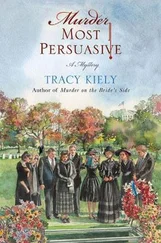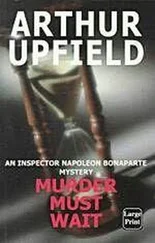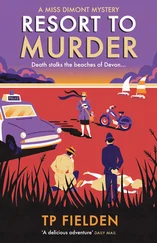“He didn’t telephone? Came round himself. At what time? On a Thursday, you say. What did he want? Asked if Olivier Lecœur worked there? What? What was he told?”
Looking up, Olivier saw a flush spread over his brother’s face before he banged down the receiver.
“Francois went there one Thursday afternoon. He must have suspected something. They told him you hadn’t been working there for some time.”
There was no point in repeating what he had heard. What they’d said to the boy was: “We chucked the old fool out weeks ago.”
Perhaps not out of cruelty. They may not have thought it was the man’s son they were speaking to.
“Do you begin to understand, Olivier?”
Did he realize that the situation was the reverse of what he had imagined? He had been going off at night, armed with his little box of sandwiches, keeping up an elaborate pretense. And in the end he had been the one to be taken in!
The boy had found him out. And wasn’t it only fair to suppose that he had seen through the Uncle Gedeon story, too?
He hadn’t said a word. He had simply fallen in with the game.
No one dared say anything for fear of saying too much, for fear of evoking images that would be heartrending.
A father and a son each lying to avoid hurting the other.
They had to look at it through the eyes of the child, with all childhood’s tragic earnestness. His father kisses him good night and goes off to the job that doesn’t really exist, saying: “Sleep well. There’ll be a surprise for you in the morning.”
A radio. It could only be that. And didn’t he know that his father’s pockets were empty? Did he try to go to sleep? Or did he get up as soon as his father had gone, to sit miserably staring out of the window obsessed by one thought? His father had no money—yet he was going to buy him a radio!
To the accompaniment, in all probability, of a full-throated Czech choir singing their national songs on the other side of the thin wall!
The Inspector sighed and knocked out his pipe on his heel.
“It looks as though he saw you at Madame Fayet’s.”
Olivier nodded.
“We’ll check up on this, but it seems likely that, looking down from his window, he wouldn’t see very far into the room.”
“That’s quite right.”
“Could he have seen you leave the room?”
“No. The door’s on the opposite side from the window.”
“Do you remember going near the window?”
“At one time I was sitting on the windowsill.”
“Was the window open then? We know it was later.”
“It was open a few inches. I’m sure of that, because I moved away from it, as I felt an icy draught on my back. She lived with us for a while, just after our marriage, and I know she couldn’t bear not to have her window open all the year round. You see, she’d been brought up in the country.”
“So there’d be no frost on the panes. He’d certainly have seen you if he was looking.”
A call. Lecœur thrust his contact plug into one of the sockets.
“Yes. What’s that? A boy?”
The other two held their breath.
“Yes. Yes. What? Yes. Send out the agents cyclistes . Comb the whole neighborhood. I’ll see about the station. How long ago was it? Half an hour? Couldn’t he have let us know sooner?”
Without losing time over explanations, Lecœur plugged in to the Gare du Nord.
“Hallo! Gare du Nord! Who’s speaking? Ah, Lambert. Listen, this is urgent. Have the station searched from end to end. Ask everybody if they’ve seen a boy of ten wandering about. What? Alone? He may be. Or he may be accompanied. We don’t know. Let me know what you find out. Yes, of course. Grab him at once if you set eyes on him.”
“Did you say accompanied?” asked Olivier anxiously.
“Why not? It’s possible. Anything’s possible. Of course, it may not be him. If it is, we’re half an hour late. It was a small grocer in the Rue de Maubeuge whose shopfront is open onto the street. He saw a boy snatch a couple of oranges and make off. He didn’t run after him. Only later, when a policeman passed, he thought he might as well mention it.”
“Had your son any money?” asked the Inspector.
“Not a sou.”
“Hasn’t he got a money-box?”
“Yes. But I borrowed what was in it two days ago, saying that I didn’t want to change a banknote.”
A pathetic little confession, but what did things like that matter now?
“Don’t you think it would be better if I went to the Gare du Nord myself?”
“I doubt if it would help, and we may need you here.”
They were almost prisoners in that room. With its direct links with every nerve center of Paris, that was the place where any news would first arrive. Even in his room in the Police Judiciaire, the Inspector would be less well placed. He had thought of going back there, but now at last took off his overcoat, deciding to see the job through where he was.
“If he had no money, he couldn’t take a bus or the Métro. Nor could he go into a cafe or use a public telephone. He probably hasn’t had anything to eat since his supper last night.”
“But what can he be doing?” exclaimed Olivier, becoming more and more nervous. “And why should he have sent me to the Gare d’Austerlitz?”
“Perhaps to help you get away,” grunted Saillard.
“Get away? Me?”
“Listen. The boy knows you’re down and out. Yet you’re going to buy him a little radio. I’m not reproaching you. I’m just looking at the facts. He leans on the windowsill and sees you with the old woman he knows to be a moneylender. What does he conclude?”
“I see.”
“That you’ve gone to her to borrow money. He may be touched by it, he may be saddened—we don’t know. He goes back to bed and to sleep.”
“You think so?”
“I’m pretty sure of it. Anyhow, we’ve no reason to think he left the house then.”
“No. Of course not.”
“Let’s say he goes back to sleep, then. But he wakes up early, as children mostly do on Christmas Day. And the first thing he notices is the frost on the window. The first frost this winter, don’t forget that. He wants to look at it, to touch it.”
A faint smile flickered across Andre Lecœur’s face. This massive Inspector hadn’t forgotten what it was like to be a boy.
“He scratches a bit of it away with his nails. It won’t be difficult to get confirmation, for once the frost is tampered with it can’t form again in quite the same pattern. What does he notice then? That in the buildings opposite one window is lit up, and one only—the window of the room in which a few hours before he had seen his father. It’s guesswork, of course, but I don’t mind betting he saw the body, or part of it. If he’d merely seen a foot it would have been enough to startle him.”
“You mean to say—” began Olivier, wide-eyed.
“That he thought you’d killed her. As I did myself—for a moment. And very likely not her only. Just think for a minute. The man who’s been committing all these murders is a man. like you, who wanders about at night. His victims live in the poorer quarters of Paris, like Madame Fayet in the Rue Michat. Does the boy know anything of how you’ve been spending your nights since you lost your job? No. All that he has to go on is that he has seen you in the murdered woman’s room. Would it be surprising if his imagination got to work?
“You said just now that you sat on the windowsill. Might it be there that you put down your box of sandwiches?”
“Now I come to think of it, yes. I’m practically sure.”
“Then he saw it. And he’s quite old enough to know what the police would think when they saw it lying there. Is your name on it?”
Читать дальше












